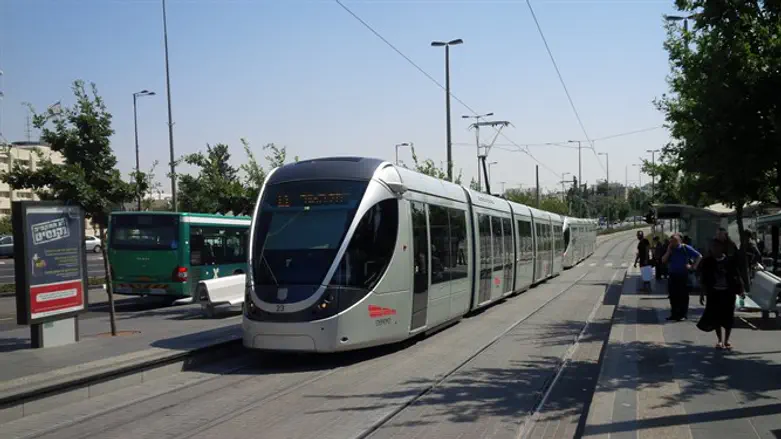
The City of Jerusalem was chosen as a finalist for the Smart City Expo’s award for the world’s ‘smartest’ transportation city, at this week’s competition in Barcelona, Spain.
The Smart City World Congress event, which began Tuesday and ended Thursday, highlighted technological innovations and hi-tech urban planning in cities around the globe.
Seven cities, representing seven different categories, netted awards at the expo, out of a total of 450 cities which competed. Of the 450 entries, 28 cities made it to the expo’s finals.
Jerusalem, one of the 450 cities entered into the competition, was among the 28 finalists.
While it did not win the award, Jerusalem was one of two runners-up for the Mobility Award, in recognition of the integration of its light rail train system and traffic light network with a cutting-edge artificial intelligence program.
Thanks to the integration of Axilion’s AI-based, Azure-powered traffic signal network optimization system, timing of traffic lights across Jerusalem are optimized to give the city’s light rail trains faster rides across town.
Since the integration of AI optimization into the traffic and light rail systems, ridership has jumped by 50%, from an average of 40,000 riders per day to 60,000, while travel time has decreased from an average of 80 minutes to get from one end of the light rail system to another, to 42 minutes.
Oren Dror, CEO of Axilion Smart Mobility, said his company utilized Microsoft’s Azure platform “to allow us to quickly utilize new and revolutionary technologies which are changing the face of the city, shorting travel time, increasing safety, and of course helping to reduce air pollution in the center of cities.”
“In the US, for example, light rail trains and buses stop an average of 40 seconds at every traffic light during their route through a city.”
“Our company is now working in full cooperation with Microsoft to implement solutions, working with the Technion and Tel Aviv University, in about 30 different cities, including some of the largest and most crowded in the world.”